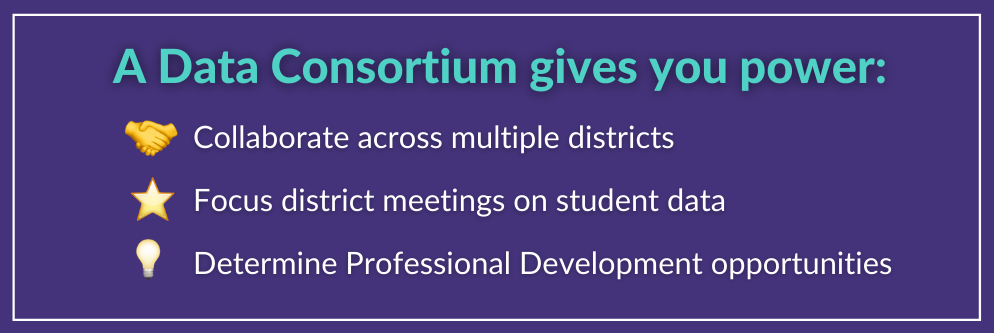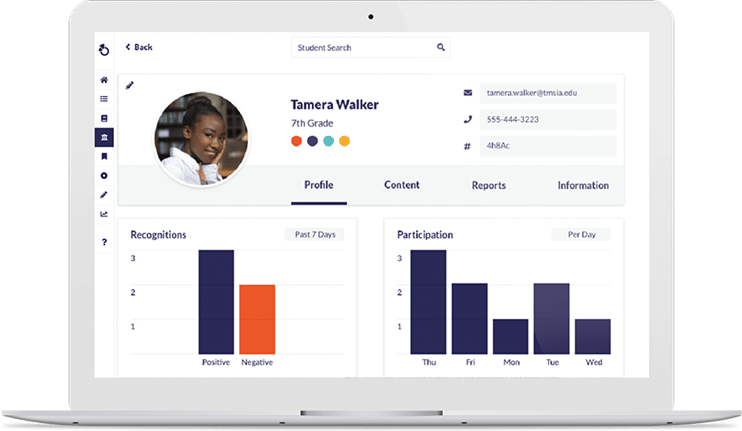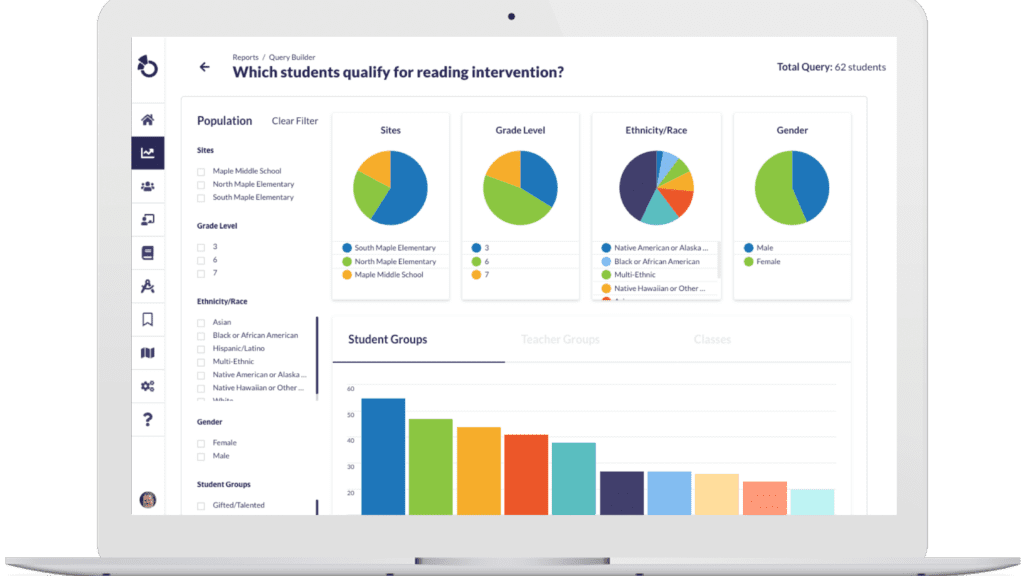What is a Consortium? Why Do They Exist?
A consortium is a group of districts that share resources with one another, like student performance data, lessons, and more. Districts that choose to enter a K-12 data consortium build and support best practices for educators, and ultimately maximize the positive impact they can have on more students.

Director of
Systems Improvement & Evaluation
Meet Paul Bauer
Paul Bauer is the Director of Systems Improvement and Evaluation at Traverse Bay ISD. He recently detailed his unique journey to find a new learning platform for 16 districts, totaling 50 schools and 24,000 students. Paul chose Otus to tackle these two initiatives:
- Implement a new K-12 Learning Management, Assessment, and Data platform, from setup to training, in eight weeks.
- Pull in Regional Common Assessment data across districts to better understand and act on student performance.
“What immediately came through was the Otus support team and the Technology coaching they provided on the spot. We created a roadmap and were up and running in June.”

Lead Data-Driven Meetings
Data is a term that’s tossed around a lot in the K-12 world, especially among educational technology companies. The reality is educators need an efficient way to visualize and act on their student data, all in one place. Using Otus, Paul was able to pull third-party data sets across multiple districts in his consortium.
With the data sets readily available, school leaders like Paul can use district meetings for student-focused discussions. For him, “being able to quickly visualize at-risk groups led to quick student intervention.”
"Otus allowed us to have very dynamic conversations in real-time with staff around the table to ultimately make quality instructional decisions that we could track over time.”
Act On Student-Centered Data
While third-party data provides a high-level view of overall student growth, data also needs to be tied to individual students. The Student Profile in Otus compiles all third-party data, report cards, contact information, student work, and more. All of this follows each student year over year.
"The Student Profile is one place that parents and staff can go to to see historical progress or school supports that have been provided to a child.”

Collaborate with Lessons & Assessments
There are approximately 50 schools in the Michigan ISD Consortium. Participating in a consortium makes sharing resources easy.
“If I’m a 6th grade social studies teacher, and I found that this lesson really worked in my classroom, I can efficiently share that across all social studies teachers in our Consortium, making collaboration easy.”
Plan Professional Development Opportunities
Providing teachers the right Professional Development opportunities at the right time, is just as important as delivering differentiated instruction to students.
COVID-19 has impacted student learning and disrupted the workflow for so many teachers. In Otus, teachers can use student performance analytics to identify those in need of intervention. Similarly, that same student data can identify trends so administrators can provide the right professional development for teachers at the right time.
Paul Bauer’s example showcases the endless possibilities when districts choose to share their data in a consortium. The transparency that comes from having so much student data in one system for administrators, teachers, students, and families is extremely powerful.
To learn more about Otus and how you can get involved with a consortium, request a demo below.
Related Resources
Request a demo!
See exactly how Otus can help your school accelerate student growth and improve student outcomes – all while saving educators time.





